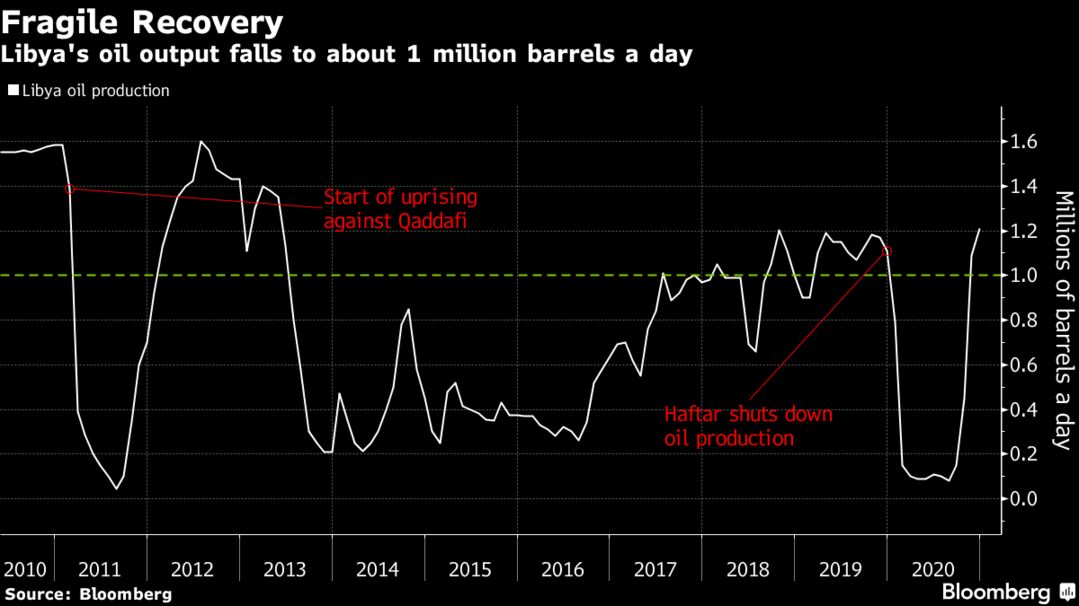Libya’s oil output has dropped by about 200,000 barrels a day after the closure of a leaking pipeline, underscoring how difficult it is for the country to maintain its production following almost a decade of civil war.
The pipeline “could no longer continue to operate due to the large number of leaks, and it’s worn out,” the NOC said. “What happened with Waha today happens daily with other companies that suffer from a budget shortage. They are also under the threat of having to reduce their production and to even halt it completely.”
Libya’s daily production surged to 1.25 million barrels this month from almost nothing in September after a truce between rival military forces. That caused problems for the Organization of Petroleum Exporting Countries and its allies, which are restricting supply to bolster oil prices following their coronavirus-triggered collapse last year. Due to its strife, Libya is exempt from the curbs.

The country’s been at war for much of the period since former leader Moammar Al Qaddafi was toppled in 2011. The Tripoli-based government, which is recognized by the United Nations, and the self-styled Libyan National Army, led by Khalifa Haftar, stopped fighting around June.
While Libya has Africa’s largest crude reserves, the NOC is struggling to fix oil fields, storage tanks, pumping stations, pipelines and ports. Some have been damaged, while others are corroding because of neglect. The NOC said it lacks the money to carry out the repairs.
